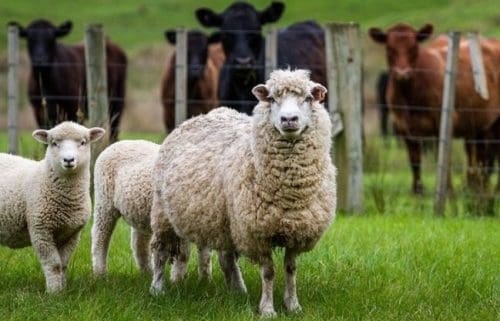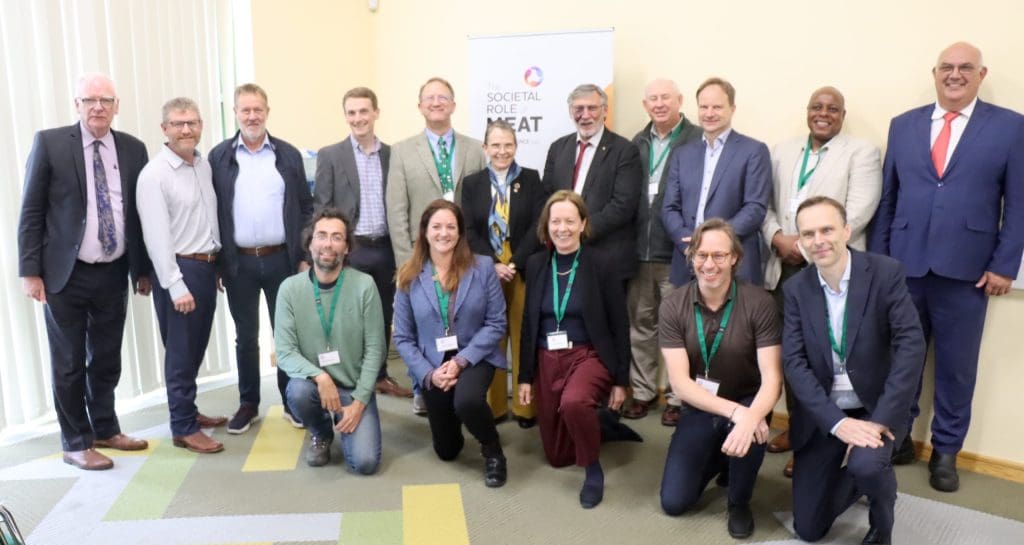 SCIENTIFIC research papers addressing the anti-animal rhetoric threatening livestock agriculture have been published in the world-renowned journal Animal Frontiers.
SCIENTIFIC research papers addressing the anti-animal rhetoric threatening livestock agriculture have been published in the world-renowned journal Animal Frontiers.
Meat & Livestock Australia said the nine papers have confirmed the critical role red meat and livestock play in society, arguing that animal agriculture is key to the challenges around climate change and global food security.
Among the authors of the international papers are Australian scientists Dr Rod Polkinghorne, OAM, a leading innovator in the global red meat industry; Professor Neil Mann, a human nutrition expert with more than 30 years of clinical trial expertise; and Monash University’s Professor Paul Wood, AO, a leading expert on the future of cell-based proteins. The papers published in Animal Frontiers can be read online here.
“Our papers published today are much more than just important pieces of scientific works to be discussed among industry advocates,” Dr Polkinghorne said.
“We want this major new analysis to inform public policy and education around meat production and consumption globally.”
Animal Frontiers is the official journal of four professional animal science societies including the American Society of Animal Science, the Canadian Society of Animal Science, the European Federation of Animal Science, and the American Meat Science Association.
“We are also calling for more scientists from all disciplines to engage with our industry so we can continue a healthy, balanced discussion on the future of animal agriculture globally – including nutritional health, the environment, the ethical consumption of meat, and global food security,” Dr Polkinghorne said.
The papers published today in Animal Frontiers formed the basis for discussion at a Dublin-based event held last year, the International Summit on the Societal Role of Meat, and for a Sydney-based event in March, The Good Meat Summit, hosted by AMPC and MLA.

Presenters at the two-day summit on the societal role of meat in Dublin included Declan Troy, Jason Rowntree, Willhelm Windisch, Nick Smith, PeterBallerstedt, Shirley Tarawali, Paul Wood, Neil Mann, Peer Ederer, Max Makuvise, Theo de Jager, Pablo Manzano, Diana Rodgers, Alice Stanton, Bradley Johnson and Frederic Leroy. Picture – James Nason.
Dr Polkinghorne said the Animal Frontiers papers also addressed the anti-meat rhetoric evident in some developed countries, including Australia.
“Our work will go a long way to communicating the importance of animal agriculture for our society, including red meat and livestock production here and around the world,” he said.
Animal Frontiers is the official journal of four professional animal science societies including the American Society of Animal Science, the Canadian Society of Animal Science, the European Federation of Animal Science and the American Meat Science Association. It is also the third most-cited journal in agriculture, dairy, and animal science.
The April 2023 journal edition’s guest editors and authors are among the nearly 1000 signatories of a declaration warning that livestock systems “are too precious to society to become the victim of simplification, reductionism or zealotry.”
The Dublin International Summit on the Societal Role of Meat was organised by an international committee comprising Peer Ederer, Founder, GOALSciences (Switzerland); Collette Kaster, CEO, American Meat Science Association (United States); Mohammad Koohmaraie, President of the Meat Division, IEH Laboratories and Consulting Group (United States); Frédéric Leroy, Professor, Vrije Universiteit Brussel (Belgium); Rod Polkinghorne, CEO, Birkenwood International (Australia); and Declan Troy, Assistant Director of Research, Teagasc (Ireland). For more information about the summit agenda and speakers, click here.
The Australian Meat Processor Corporation together with Meat & Livestock Australia brought nine scientists from around the world together on Tuesday March 21 in Sydney for The Good Meat Summit to discuss the scientific evidence in support of red meat and livestock production in today’s society.
The Australian Good Meat Summit brought together industry leaders and producers from across the red meat and livestock sector to hear key messages ahead of the scientific papers published this week in Animal Frontiers.
AMPC’s chief executive officer Chris Taylor and MLA’s managing director Jason Strong said the summit was an Australian-based take on the summit held in Dublin and provided an excellent opportunity to bring industry leaders, producers and scientists together under one roof.
The papers published today can be read online here.
Source – MLA.

HAVE YOUR SAY